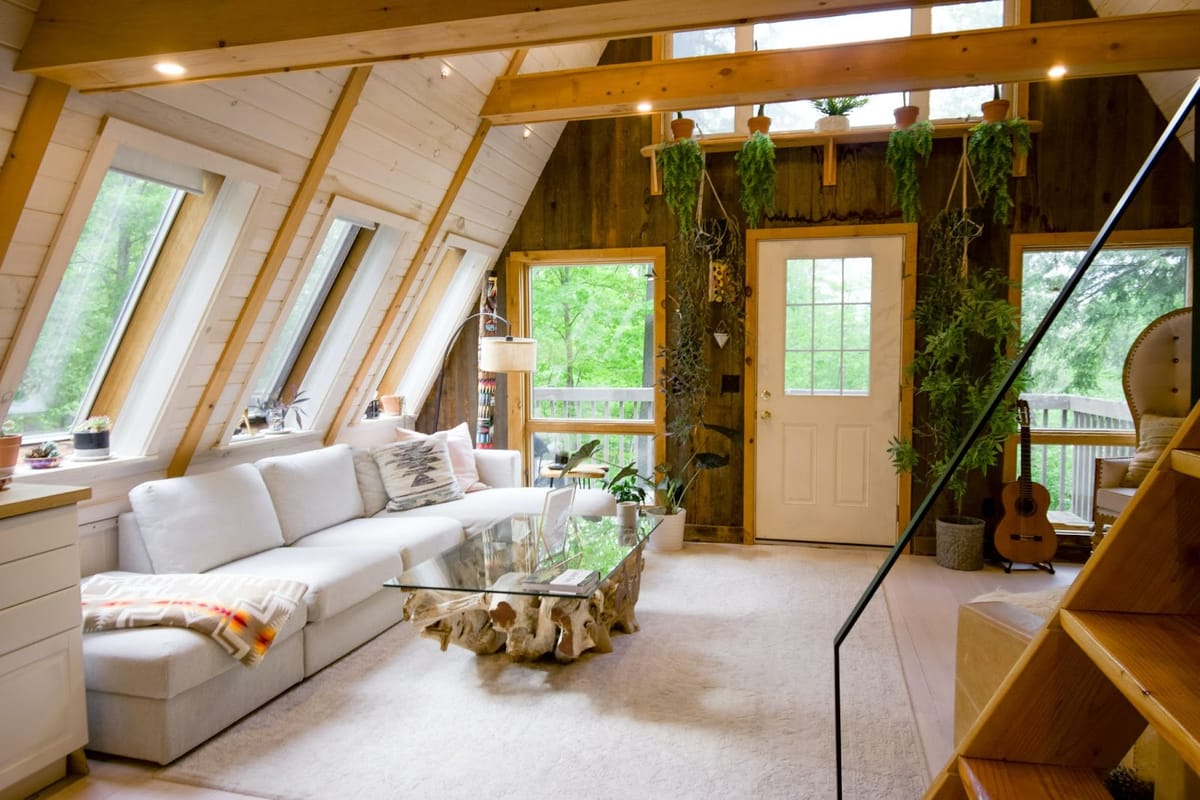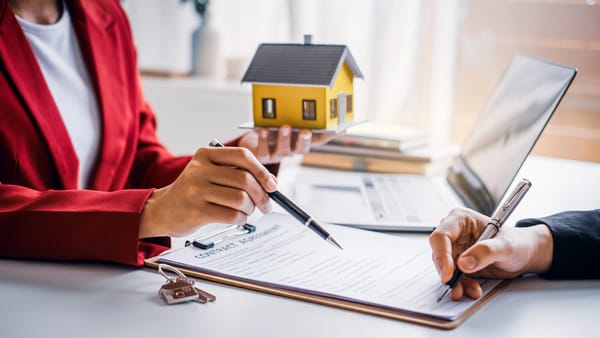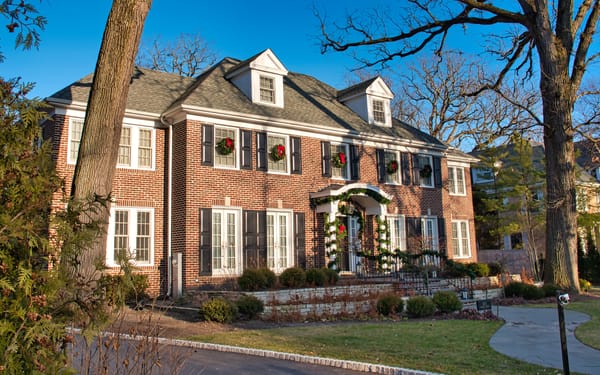How to File a Claim for Damage on Airbnb: A Guide

Are you a host planning to rent out your property but are worried about the potential damage your guest might cause to it? Or maybe you’re a guest who is worried about complications in case of any accident or mishaps during your stay. In either case, it’s important to understand the process of Airbnb damage claims to navigate your vacation rental situation smoothly.
In this article, we will explore the different scenarios that may happen during the Airbnb stay and discuss the best ways to handle them. Read on to discover more on how to file a claim with Airbnb.
Guidelines for Airbnb Guests
1. Preparing for a Successful Stay
Before you even set your foot in an Airbnb property, it’s important to have a chat with your host and discuss any concerns or special requirements you may have to avoid misunderstanding later on.
Furthermore, both guests and hosts should take the time to document the rental property’s condition before the vacation rental begins. A place may already have signs of wear and tear or certain damages, and it’s important to collect solid evidence before moving in.
For example, a host can create a video walkthrough or take a few photos to demonstrate the condition of the Airbnb property prior to the guest’s arrival.
If your business is present on Instagram, there is no need to bother yourself with extra work. Just download ready-made content from the account and publish it on the site. Apply Instagram Video Downloader instead of screen recording to keep the original video quality. The same can be done for any other social media.
-
Identifying and Documenting Damage
If worst comes to worst and guest damage does occur during your vacation rental, don’t delay reporting it to your host. Timely communication is the key.
-
Accidental Damage by a Guest
Say, you’ve accidentally spilled a glass of red wine on the host’s brand-new white sofa. The first step is to immediately inform the host about the Airbnb damage. Be honest and transparent about what happened. Apologize for the incident and assure the host that you’re willing to take responsibility.
Next, document the Airbnb damage by taking a photo of the affected area. This visual evidence will help support your claim and assess the extent of the Airbnb damage. Make sure to take clear close-up shots as well as wide-angle photos to provide an accurate representation.
You can send a picture to the host directly, but the proper way of doing this is to report the Airbnb damage through the Airbnb platform. This formalizes the process and ensures that all communication is recorded. Provide a detailed explanation of the incident, including the time, date, and circumstances under which the Airbnb damage occurred, and attach the photos.
-
Dispute Over Normal Wear and Tear
Sometimes, hosts may claim damages that are actually a result of normal wear and tear. This can lead to disagreements and disputes and cause lots of frustration for most guests. If you find yourself in this situation, don’t just stand by. Communicate your perspective clearly and calmly.
For example, if the host claims that a scratched wooden floor is your doing, but you have photos from the beginning of your vacation rental showing the scratches already existed, share this evidence with the host and contact Airbnb. Clear documentation will help establish your innocence and prevent unjust claims.
Be sure to talk to your host, too. Sometimes, an open dialogue is all you need to sort things out. Try to understand their concerns and explain your viewpoint. In some cases, if things can’t be resolved between the host and guest, Airbnb may need to intervene to mediate the situation and make a fair judgment.
-
Host’s Failure to Address Maintenance Issues
Another scenario that is quite possible is when you arrive and encounter maintenance issues with the Airbnb property that are beyond your control. For example, a plumbing issue, electrical malfunction, or lack of essential amenities. In such cases, promptly contact your host and tell them about the problem.
If, for any reason, the host fails to address the issue in a timely manner, document your attempts to resolve the problem by communicating with the host through Airbnb’s messaging system. This will serve as evidence of your efforts to resolve the matter amicably.
Should this not work and the host’s negligence persists, contact Airbnb’s customer support to report the situation. Explain the issue and provide the recorded evidence. Airbnb will then work toward a resolution, which may involve relocating you to a different rental property, offering a refund, or taking other appropriate actions relevant to your situation.
-
Disputes and Escalation
If Airbnb’s decision isn’t in your favor despite the fact that you’ve got solid evidence that you’ve done nothing wrong and the Airbnb damage was already there, or if you believe the amount of reimbursement claimed isn’t reasonable, you have options for escalation.
Begin by reaching out to customer support to seek clarification. They may be able to provide additional insights or review the Airbnb damage claim further. If needed, you can also explore external arbitration or legal action, though these steps should be taken as a last resort.
-
Mitigation and Prevention
It goes without saying that prevention is always better than dealing with Airbnb damage control after the fact. We all know accidents happen and you need to stay calm. As a guest, you can minimize the risk of causing Airbnb damage by treating the rented property with respect, following the rules set out by the host, and promptly reporting anything that you think isn’t right to the host.
Additionally, it’s a good idea to check your own insurance coverage to ensure that you’re protected in case of Airbnb damage.
By following these simple guidelines, you’ll be well-equipped to handle any unforeseen circumstances and ensure that your Airbnb stay is enjoyable and stress-free.
Guidelines for Airbnb Hosts
-
Set Clear Expectations
While you may expect that other people will treat your rental property with as much care as you do, things don’t always work that way, especially if you’re only renting out for a short term. Therefore, the best thing to do to avoid Airbnb damage and frustration is to outline any specific rules regarding the use of appliances, furniture, or other items in your rental property.
For example, as an Airbnb host or a property manager, you can create a house manual, providing clear guidelines on how to operate appliances, use amenities, and so on. By providing this information upfront, you will have more confidence that your guests understand what is expected from them during their vacation rental and stick to these rules so you will not have to incurr any unexpected costs.
Alternatively, you can discuss your house rules through messages on the Airbnb platforms or by including them in your listing description. This is the best thing to do because you’ll have recorded communication of the rules, which can serve as evidence in case of any disputes or damages.
Furthermore, if you have any valuables or delicate items that can be easily broken, consider securing them or removing them from the premises during guest stays. This can help prevent accidental damage and give you peace of mind knowing that your prized possessions are safe.
-
Take Security Deposits
Consider implementing a security deposit policy for your Airbnb listing. This acts as a financial safeguard in case of any Airbnb damage caused by guests during their stay. Make sure to clearly state the deposit amount and the conditions under which it will be withheld.
Not all guests read listings carefully, though. Therefore, it’s always a good idea to mention the security deposit policy over the phone or in messages to ensure that your guests are aware of it before booking.
As a rule, when people know that they may lose the security deposit in the event of any Airbnb damage, they tend to be more careful overall. For Airbnb hosts, this also gives an additional layer of protection, giving them confidence that they’ll receive compensation if the worst comes to worst.
-
Create a Detailed Inventory
Document all the inventory there is in your rental property and make notes about their condition before each guest’s arrival. Keep a close eye on any existing damages, wear and tear, or valuable items. This will serve as a reference point for future claims, helping you differentiate between pre-existing damage and Airbnb damage caused by guests.
By implementing a comprehensive inventory management system within your composable commerce framework, you can efficiently track and monitor the status of each item, to gather evidence in the event of any disputes or Airbnb damage.
-
Invest in Insurance
Of course, you should also get comprehensive insurance. Consider insurance options specifically designed for short-term rentals. These policies can provide coverage for rental property damage, liability protection, and even loss of income due to unforeseen circumstances. While Airbnb will reimburse you for any guest damages, it’s still best to play it safe.
Especially since there are now a huge number of different vacation rental insurance policies that can be taken out online and even in cryptocurrency. This is particularly relevant for individuals who closely follow the cryptocurrency market and are interested in Cardano price prediction and other related transactions. By keeping up with these developments, individuals can easily and quickly arrange vacation rental insurance coverage that aligns with their specific needs and preferences.
-
Take Verified Guests
You can accept many guests, of course. However, if you’d like to err on the caution side and ensure that guest damages are less likely to occur, you can make a decision to take only those guests who have been verified on Airbnb. In this case, you’ll know exactly who’s coming to you, as these guests will be asked to upload their legal documents to prove their identity.
-
Report Damage
If you check your rental property after the guest’s stay and notice anything scuffed, scratched, or broken, you need to file a claim for damage through Airbnb. Be sure to do it as quickly as possible since Airbnb policies allow only 14 days from the guest’s checkout date to report the Airbnb damage.
Once the Airbnb damage claim is made, your guest will have 72 hours to reimburse the damage. This is the ideal scenario. However, things aren’t always that straightforward. Sometimes, an Airbnb guest refuses to pay. In this case, you’ll need to contact the Airbnb resolution center within the next 30 days to help you get reimbursed.
If you have requested an Airbnb security deposit, chances are good that you will be compensated. If not, all you can hope for is that your particular case can be covered by Airbnb’s Host Guarantee, which would largely depend on the amount of evidence you provide.
It’s worth noting that not all Airbnb damage will be eligible for reimbursement. Some mishaps occur as the result of normal wear and tear and are an inevitable part of hosting guests in a rental property. Let’s see which guest damages are considered serious and which may not be covered by Airbnb’s reimbursement policies.
Serious Damage
- Stained upholstery. If your guest spills a glass of wine or nail polish on the sofa or leaves a fag burn, this would certainly classify as serious damage.
- Dents in the furniture or floorboards. The same goes for deep dents left due to the drops of heavy objects on the floor.
- Damaged garden or outdoor furniture. A broken patio ottoman, grill, hot tub, and even garden are all types of Airbnb damage that are eligible for reimbursement.
- Missing items. If any of your possessions have been stolen, you should report it.
Normal Wear and Tear
- Limescale residue in the sink, bathroom, or shower cubicle.
- Old carpets fraying or tearing.
- Plumbing or electric malfunctions.
- Breakdowns on old appliances.
Conclusion
In general, most Airbnb hosts and guests are quite happy with their Airbnb experiences, and incidents of significant Airbnb damage are relatively rare. However, it’s important for both hosts and guests to be aware of the process for handling a damage claim to protect themselves and ensure a fair resolution in case an unfortunate accident happens.
Hopefully, with the guidelines we’ve shared with you in this article, you’ll save yourself a headache and your next Airbnb stay, whether you’re a host or guest, will go as smoothly as possible. Plus, you can always rely on the Airbnb team that can make things easier for you.
About the Author
Lauren Bradshaw started academic writing in 2003. Since then she has tried her hand in SEO and website copywriting, writing for blogs, and working as an academic expert at professional writing companies. Currently she is working for CustomWritings essay service. Her major interests lie in content marketing, developing communication skills, and blogging. She’s also passionate about traveling, psychology and literature.






